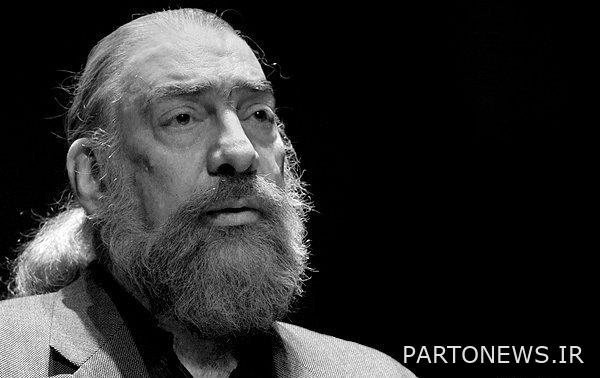A popular artist who did nothing to please the people

Parviz Meshkatian, the late and well-known artist of Iranian music, who was born 68 years ago on these days, is one of those composers who are part of the country’s reputation and honor. An artist who does not tire the audience of listening to his works and has something to say every time in every work.
Charso Press: Meshkatian is a composer who not only excelled in creating works with words, but also composed works without words with the same power; An example of this is his joint album with Mohammad Reza Shajarian called “Dud Oud”; An album from which each piece alone could make a successful career for this Iranian music artist; A work that, along with his other works, has depicted the atmosphere of Iranian music in such a grand and at the same time attractive atmosphere that perhaps we have heard less of it.
In any case, from an artist with the genius of Meshkatian, who was proficient in playing instruments such as the violin and the dulcimer, and has dedicated his life to his love – that is, music – nothing else is expected.
Of course, the reason for the effectiveness of Meshkatian’s works may be based on his belief that despite the artist’s interest in his audience, he should not create works to please them. In fact, he said in an interview about this point of view: “I have never done anything for the sake of greeting or pleasing the listeners. Of course, I am one of these people, I love them, I am in love with them, sometimes I miss them. But I am going to give my message to the people and I will not make any arrangements for the sake of pleasing my listeners. I speak my mind and I hope people like it.”
Meshkatian also believed that if the conditions of music are different at a specific point in time, it is not going to end, rather, as art has always survived throughout history, it will be the same at any point in time.
He said about this issue in a video interview: “Once upon a time, there were guards of Bagh and Bostan, where Iranian music professors used to go there and play instruments. Today, we live in a time when many people go to the studio to record a work, but at that time there was no harmony. The city has not been crowded like this.
“In addition, the influence of climate and geography on the artist cannot be ignored. Today, if someone wants to come to see me, he has to spend two hours and pass smoke, stench, cement and concrete on his way.”
René Descartes (French philosopher) once said, “I doubt therefore I am” but today it should be said that I inhale diesel smoke therefore I am. The times have changed a lot, it should not be compared with the intellectual, emotional, emotional and even romantic leaps of the past. At that time, if they fell in love, they would play the instrument under the lover’s window and look at their lover in the moonlight, but today, if you go under the lover’s window, your face will surely turn black from the smoke and you won’t have time to play the instrument.”
“But I’m not disappointed, that is, we shouldn’t think that because improvisation has not developed before, so something is missing; No, in my opinion, man is a very complex and thick-skinned creature, and he finds the final form of expressing his love, of course, if he is in love. If the flow of improvisation, creation and creativity is supposed to be so simple in an artist, despite all the events that have happened to artists throughout history, today we would no longer have art.
Meshkatian also valued traditions and what the past left for us and believed that one can do well in culture and art when we are aware of our background.
In this regard, he said: “Knowing is a very simple thing. A modern poet of ours who wants to be contemporary and speak with the language, pulse and heart of the people of his time, if he stands on the shoulders of his predecessors, he will move forward in the scope of his time. In my opinion, if poets like Nima Peishneh; That is, they did not know the old poetry, their works did not have a strong element of it.
“Actually, knowing the background is a background for arranging the mentality of the present and movement for the future. That is why Gandhi said: “Innovation that is not rooted in tradition is vulgar.” But I would add to Gandhi’s saying that the one who is a traditionalist is the first innovator. Therefore, traditions should be respected; Because it was not so simple that a nation and ethnicity chose something as a tradition for themselves.

